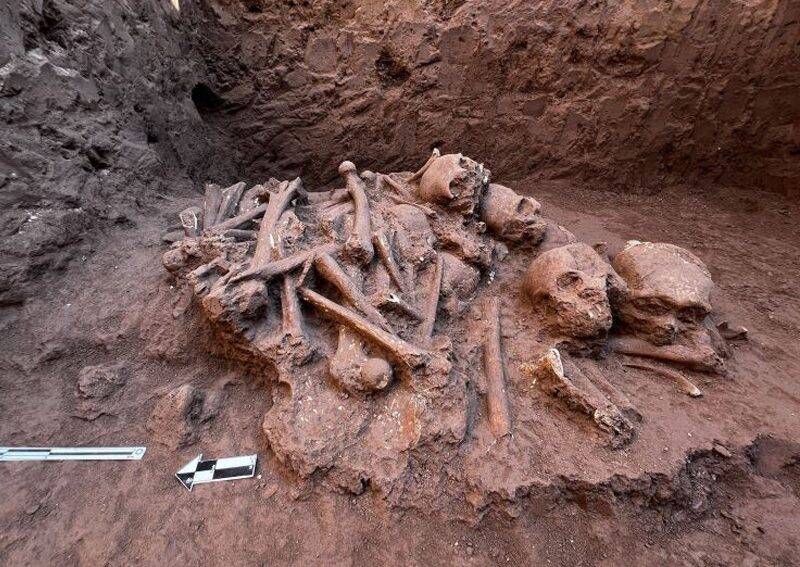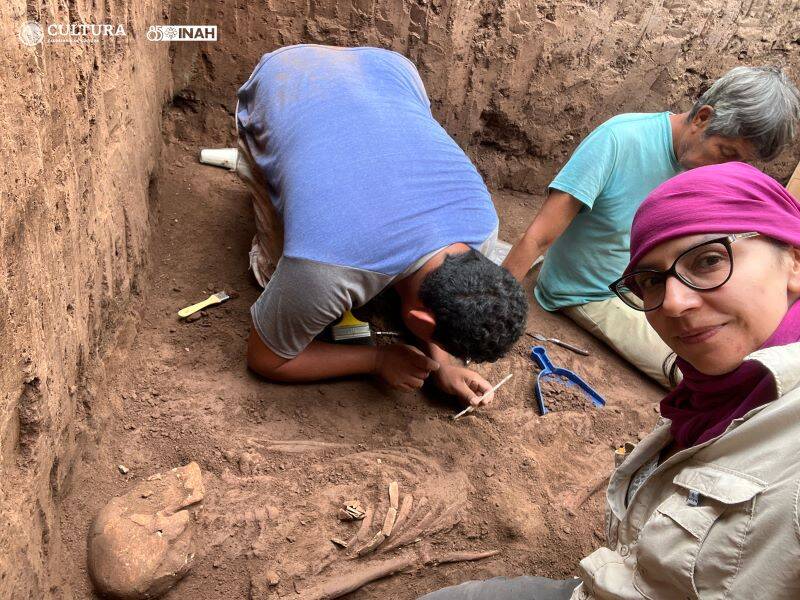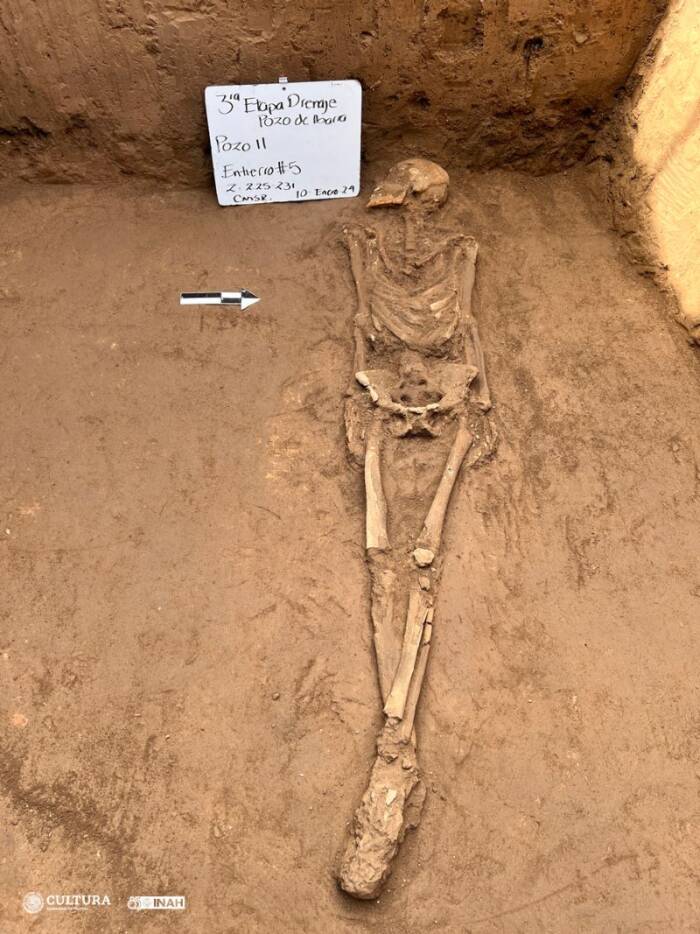Researchers believe the human remains buried at Pozo de Ibarra, Mexico, may have been offered up as sacrifices to celebrate the founding of a new settlement.

National Institute of Anthropology and History of Mexico/Claudia Servín RosasThe human remains found in Pozo de Ibarra, Mexico.
Archaeologists from the National Institute of Anthropology and History (INAH) have uncovered pre-Hispanic human remains in Pozo de Ibarra, Mexico — and they may have been victims of ritual sacrifice.
Researchers hypothesize that Indigenous families used the remains, so far all identified as male, in a ritual to celebrate the founding of a new settlement.
This finding has excited researchers in part because of its educational value and promise of shedding more light on what life was like in pre-Columbian Central America.
The Discovery Of The Ancient Remains

National Institute of Anthropology and History of Mexico/Claudia Servín RosasArchaeologists from INAH excavating the site.
While carrying out a recent sanitary sewage network construction project, workers called researchers from the INAH Nayarit Center to excavate a portion of the site that had potential historical and cultural value.
According to Claudia Servín Rosas, the head archaeologist of the rescue team, they found a primary burial of one individual surrounded by various scattered human bones.
These scattered bones included femurs, tibias, ulnas, and skulls without any discernible anatomical relationship. Interestingly, researchers found that the skulls were deliberately stacked atop each other and belonged to at least seven men of various ages.
“As part of the interpretations of this find, it is suggested that, perhaps, it was part of the funerary rites that were carried out in the domestic units of the region, which could have been based on the burial of male members of the same family as part of a ritual to celebrate the founding of a settlement,” INAH reported in a press release.
Finding Meaning In The Human Remains

National Institute of Anthropology and History of Mexico/Claudia Servín RosasThe remains of the intact skeleton found at the burial site.
Findings at the Pozo de Ibarra site have sparked fascinating theories about life in pre-Columbian Central America. For one, researchers identified several examples of cranial modification in the skulls, pointing to a cultural practice among Mesoamerican people that emphasized aesthetics, class distinctions, or both.
Anthropological studies of the remains show that they were already skeletonized at the time of burial and placed deliberately and simultaneously as part of a funerary rite.
“This method of arrangement suggests the existence of specific ceremonial practices associated with death in pre-Hispanic times in the region. The discovery is possibly related to the Amapa cultural phase [between 500 and 850 C.E.] because ceramic vessels and anthropomorphic figurines from that period were also recovered,” INAH stated in their report.
Researchers speculate that the remains could have come from a single family who offered up their male relatives as part of a ritual to celebrate a new settlement.
Regardless of the purpose, the arrangement of the human remains is something researchers have never seen before in this region.
“This archaeological find is exceptional since there are no precedents for this type of burial in other nearby sites, and it enriches the understanding of funerary practices in the region,” INAH noted.
According to La Brújula Verde, INAH and local authorities are working together to preserve the remains and study them further in order to better understand Mexico’s archaeological heritage.
After reading about this archaeological find in Pozo de Ibarra, dive into nine of the most fascinating archaeological discoveries made in 2023. Then, read about the practice of human sacrifice in Mesoamerica.





